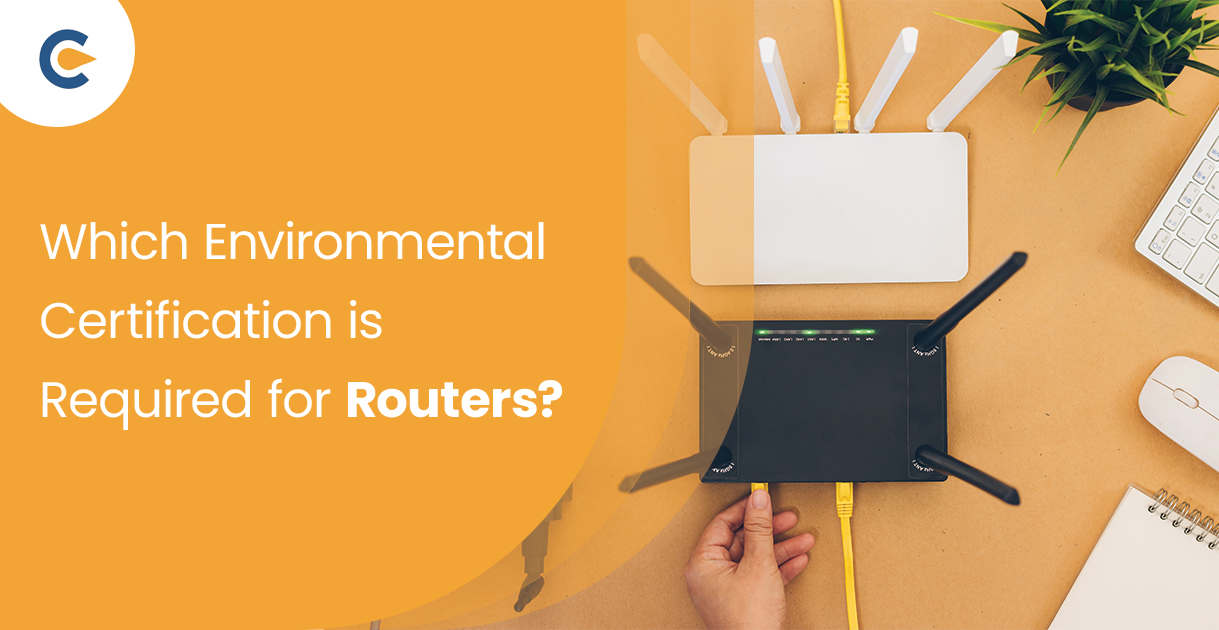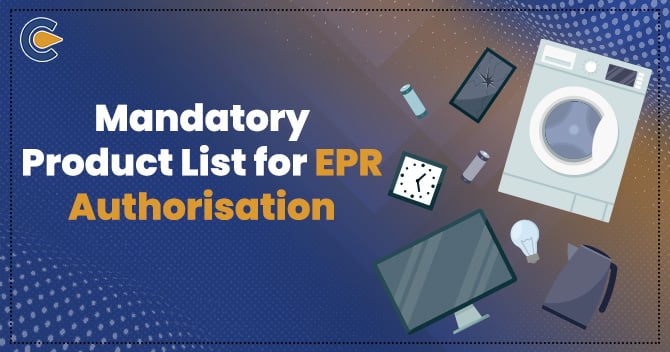In an age where environmental sustainability has become very significant, businesses from every field of commerce strive to steer their practices toward meeting eco-friendly standards.
The Tech industry is known for its rapid innovations and broad impacts.
Routers are among the most central devices in today’s digital ecosystems. They are at the heart of our connectivity infrastructure. But, just like any other electronic device, they bear an ecological footprint that must be kept under control.
This blog will delve deeper into the various environmental certifications a router needs to undergo, why they are essential, and the benefits for both manufacturers and consumers.
A Brief Take on Environmental Certifications for Routers
Environmental certifications for Routers are the official acknowledgements which have been awarded to the products or businesses that have successfully met the specific environmental performance criteria.
These certifications aim to reduce and put in efforts to reduce the ecological impacts or ‘footprint’ of a product from its manufacture to eventual disposal. In the electronics sector, these certificates help in ensuring energy efficiency, freedom from hazardous materials, and recyclability of devices.
Various Benefits of Environmental Certifications for Routers
Environmental Certification required for routers offers numerous Benefits, and they are as follows:
- Reduced Environmental Impact: Environmental Certification significantly reduces waste, pollution and resource consumption.
- Improved Marketability: Environmental Certification would help increase consumer confidence and preference for the certified products.
- Compliance with Regulations: Environmental Certification helps manufacturers comply with National and International Environmental Regulations on any product.
- Savings: Most of the time, Environmental Certification leads to reduced energy consumption and waste management costs.
Environmental Certifications Required for the Routers
Some Important Environmental Certification required for the Routers are as follows:
1. Energy Star:
Energy Star is one of the most popular and widely known certification programs that helps advance energy efficiency. Products that acquire the Energy Star label are independently certified to save energy, money, and the environment.
Various criteria that have to be met for the Certification are as follows:
- You must mandatorily meet the strict energy efficiency guidelines.
- Tests in regards to this must be conducted in an EPA-recognised laboratory.
- Products should also be verified through an ongoing verification testing process.
Impact of the Energy Star on the Routers:
Routers that have successfully acquired Energy Star certification use less power. This certification also reduces overall energy usage, resulting in low electricity bills. Lastly, this certification signifies its excellent commitment to reducing greenhouse gas emissions.
2. Electronic Product Environmental Assessment Tool (EPEAT):
EPEAT is a well-known global rating system that helps purchasers assess, compare, and finally select electronic products based on their features, attributes, and performance. The Green Electronics Council manages EPEAT and encompasses various product categories, including routers.
Various criteria that have to be met for the Certification are as follows:
- Product Rating is done on the basis of multiple environmental criteria that include reduction/elimination of environmentally sensitive materials, design for end-of-life, product longevity, energy conservation and packaging.
- According to the requirement, manufacturers are bound to declare their products’ compliance with these criteria.
Impact of EPEAT on the Routers:
EPEAT-certified routers are designed with a built-in lifecycle perspective and focus on energy efficiency, material selection, and recyclability. This will ensure a significant reduction of their environmental impact from the production phase to the end-of-life disposal processes.
3. RoHS (Restriction of Hazardous Substances):
RoHS is a directive in the European Union that restricts the use of specific hazardous materials found in electrical and electronic products. Its primary aim is to minimise the effect of those substances on health and the environment. Securing RoHS compliance certificate is of utmost importance.
Various criteria that have to be met for the Certification are as follows:
- Prohibition of the use of six hazardous materials is a must to meet the eligibility criteria of this certificate. The six hazardous materials are Lead, Mercury, Cadmium, Hexavalent Chromium, Polybrominated Biphenyls and Polybrominated Diphenyl Ether.
- Products that meet the eligibility criteria must be tested for compliance to ensure that their concentration values are not higher than the maximum value set forth for these substances.
Impact of RoHS on the Routers:
Compliance with RoHS ensures that routers are free from any kind of hazardous substance, which makes sure that they are safe for the customers and not difficult to recycle. This minimises the chance of environmental contamination and health threats as well.
4. WEEE (Waste Electrical and Electronic Equipment):
WEEE is a European Community directive that addresses the treatment and management of electrical and electronic waste. It sets out the collection, recycling, and recovery targets for all types of electronic products, including routers.
Various criteria that have to be met for the Certification are as follows:
- The manufacturers must register and report the quantity of electrical and electronic equipment placed on the market.
- They shall also ensure proper collection, recycling, and recovery of end-of-life products.
Impact of WEEE on the Routers:
WEEE compliance ensures that the routers are responsibly disposed of and recycled, thus successfully reducing the amount of e-waste that ends up in landfills. This, therefore, helps conserve resources and reduce environmental pollution.
Besides this, EPR registration and environmental clearance from the concerned authority are also required.
Upcoming Future Trends and Developments
Given the current awareness of the issues pertaining to the environment, new certifications and standards are bound to emerge within the field of IT Technologies.
Advances in the material of construction, the use of efficient energy and technologies related to new recycling strategies will help in the development of greener routers. Therefore, the government and international organisations will assist in setting up these new standards and their implementation to ensure that these technologies do as little harm as possible to our environment.
Emerging Certifications
Emerging Certifications in the future are as follows:
- TCO Certified: This Environmental Certification program for IT products encompasses social and ergonomic factors.
- Blue Angel: Blue Angel is a Germany accreditation that is provided to eco-friendly products and services that want to enter other European markets, including electronics.
Predictions Related to the Future
Some predictions related to the future are as follows:
- Expansion of circular economy approaches in regards to the improvements related to product lifecycle management and effective usage of the resources.
- More reforms and regulations related to obsolete electronic devices and dangerous materials that can end up influencing the development of green manufacturing in a negative way.
- More participation of consumers actively demanding and requesting environmentally certified products that ultimately affect the consumers’ choices and markets.
Conclusion
Environmental certifications for routers are crucial to decrease their ecological impact and promote sustainability. Various organisations such as Energy Star, EPEAT, ROHS, and WEEE govern the energy efficiency of routers, making sure that they do not have any hazardous components and are responsibly recycled through accredited organisations.
For the upcoming products in the market, these certifications not only help in increasing marketability but also ensure that they comply with all the regulations. As society becomes more environmentally conscious, there will be a further evolution of the corresponding certifications and standards for greener technologies. Both the consumers and the manufacturers of the products must obtain these certifications to ensure a sustainable future in the technology industry.
Frequently Asked Questions
What is the purpose of environmental certifications for routers?
Environmental certifications for routers aim to reduce their ecological footprint, ensure energy efficiency, eliminate hazardous materials and promote recyclability.
Which certification focuses on energy efficiency for routers?
Energy Star is the certification that specifically focuses on energy efficiency for routers and other electronic devices.
How does EPEAT apply to routers?
EPEAT (Electronic Product Environmental Assessment Tool) is a global rating system that assesses electronic products, including routers, based on environmental criteria such as material selection, energy efficiency, and recyclability.
What does the RoHS certification ensure for routers?
ROHS (Restriction of Hazardous Substances) certification ensures that routers are free from six specific hazardous materials, making them safer for consumers and easier to recycle.
How does the WEEE directive impact router disposal?
The WEEE (Waste Electrical and Electronic Equipment) directive ensures that routers are responsibly disposed of and recycled, reducing e-waste in landfills and conserving resources.
What are the benefits of certifications for router manufacturers?
Benefits of environmental certifications include improved marketability, compliance with regulations, potential cost savings and increased consumer confidence in their products.
Are there any upcoming environmental certifications for routers?
Emerging router certifications include TCO Certified and Blue Angel, which consider additional factors such as the social and ergonomic aspects of IT products.
How do environmentally certified routers benefit consumers?
Certified routers often use less power, resulting in lower electricity bills, and they are safer because they do not use hazardous materials.
Why is it important to consider environmental certifications for routers?
These certifications are important as they ensure compliance with regulations, promote sustainability, and contribute to a more environmentally conscious technology industry.
Read our article: EPR Certification For Electronic Manufacturers










